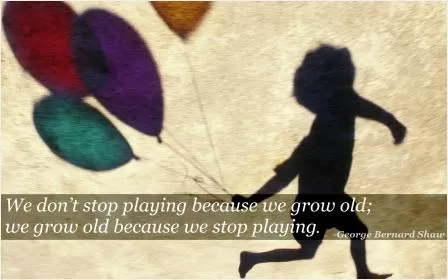Youth is wasted on the young

Youth is wasted on the young
The phrase "youth is wasted on the young" is often attributed to the Irish playwright George Bernard Shaw, although there is some debate about its origins. Regardless of who first coined the phrase, its meaning is clear: young people often fail to appreciate the advantages and opportunities that come with being young.Shaw himself was a prolific writer and playwright who lived a long and productive life, but he was also known for his sharp wit and biting social commentary. In many of his works, Shaw explored the themes of youth, aging, and the passage of time. One of his most famous plays, "Pygmalion," tells the story of a young flower girl named Eliza Doolittle who is transformed into a refined lady through the efforts of a phonetics professor. The play is a commentary on class, education, and the ways in which society shapes individuals.
In the context of Shaw's work, the phrase "youth is wasted on the young" can be seen as a critique of the way in which young people often squander their youth on frivolous pursuits and fail to appreciate the opportunities that come with being young. Shaw believed that young people should be more focused on self-improvement, education, and social change, rather than simply enjoying the pleasures of youth.
Shaw himself was a late bloomer, achieving success as a playwright in his forties after years of struggle and obscurity. He understood the value of hard work and perseverance, and believed that young people should take advantage of their youth to pursue their passions and make a difference in the world.












 Friendship Quotes
Friendship Quotes Love Quotes
Love Quotes Life Quotes
Life Quotes Funny Quotes
Funny Quotes Motivational Quotes
Motivational Quotes Inspirational Quotes
Inspirational Quotes